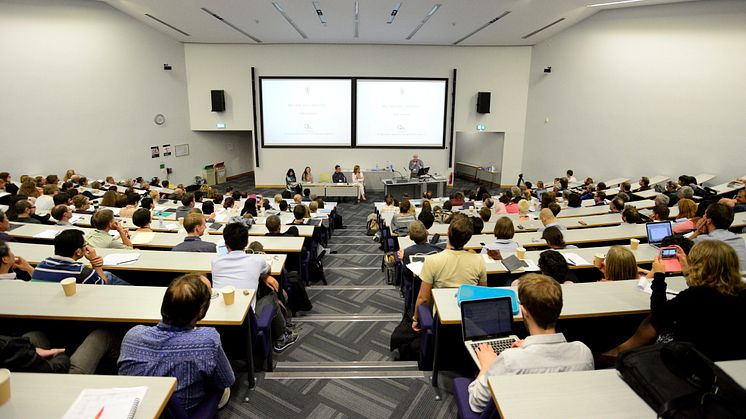
Press release -
Leading linguists come to Northumbria
The event, which is the largest meeting of cognitive linguistics in the world, offers researchers the chance to interact with, and learn from, those in their discipline.
Northumbria, which is home to one of the strongest centres of research in cognitive linguistics in the world, is the first place in the UK to host this internationally renowned event.
The special theme of this year’s conference was ‘bringing together theory and method’, with a number of plenary speakers offering their view on the future of the subject to an audience of over 600 people.
Amongst the speakers was Ronald Langacker, a widely respected figure within the field, known best as one of the founders of the cognitive linguistics movement and the creator of Cognitive Grammar. Speaking about his research, he said: “Cognitive linguistics is a very broad field, cognitive grammar is one approach within that field. It’s my own formulation of how to integrate studies of meaning and studies of grammar.
I started in 1976 working on this idea, 39 years I am still working on it. When I started, I thought a totally new approach to language structure was needed so I just sat down one day and started to develop it. I figured it would take me a few weeks to get it all together, yet it’s now been 39 years and I think another 39 years should do it!”
The ICLC is the biennial conference of the International Cognitive Linguistics Association, which was set up in 1989 to promote research within the field. The event at Northumbria marks the 13th official conference that the association have held, with previous conferences held at institutions such as the University of California and the Free University of Amsterdam.
Dr Amanda Patten, Conference chair of the ICLC-13 and Senior Lecturer in Language and Linguistics, said: “Part of the reason why we were so successful with the bid to host ICLC -13 at here at Northumbria is because we have such a strong team of cognitive linguists at the university.
We have people like Professor Ewa Dąbrowska who is very well known within the field as well as fantastic early career researchers and postgraduates too. “
Lucy Winskell OBE, Pro Vice-Chancellor (Business and Engagement) at Northumbria University, said: "Leading scholars and researchers from around the world have this week attended the International Cognitive Linguistics Conference at Northumbria, highlighting the fantastic links the institution has with global businesses and organisations. We are delighted to collaborate with the ICL Association to host this internationally renowned event."
Northumbria is one of the strongest centres of research in cognitive linguistics, both in the UK, but also internationally. To find out more about the courses we offer, please visit:
https://www.northumbria.ac.uk/about-us/academic-departments/humanities/research/english-research/english-language-and-linguistics/
Topics
Categories
Northumbria is a research-rich, business-focussed, professional university with a global reputation for academic excellence. To find out more about our courses go towww.northumbria.ac.uk
If you have a media enquiry please contact our Media and Communications team at media.communications@northumbria.ac.uk or call 0191 227 4571.







